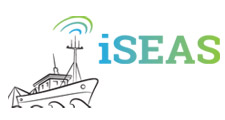
In 2015, the Department of Applied Economics – Fisheries and Natural Resources Economics (USC), partner of the Life iSEAS project, conducted a total of 13 interviews with fishing sector professionals, in order to obtain their opinion on the fishing discards and the forthcoming implementation of the Landing Obligation for those species subject to TAC or minimum sizes. Two years later, the research group has just completed 11 interviews with the same professionals (skippers and fishing vessel owners), to compare their visions after two years of application of this regulation. The interviews were carried out in the localities of Marín and Bueu, with an approximate duration of 45 minutes.
From the ship owners’ answers, it was concluded that their main concern, in relation to the aforementioned regulation, is the increase in time that will be needed for the onboard handling t and management of discards.
Taking advantage of the shipments that are carried out within the project, an analysis of the time to perform the discard management processes is being carried out on the vessels of the Organización de Productores de Pesca Fresca del Puerto y Ría de Marín (OPROMAR), which is a partner of the project involved in this study. The information gathered is essential to accurately document the work to be done on board. As a result, it is expected to establish the average time required for the onboard management and the subsequent landing of each fish box for the fleet under study, the trawler fleet based in the port of Marín.
The first results of this study will be presented at the EAFE Conference 2017, to be held in Dublin from 25th to 27th April 2017.


